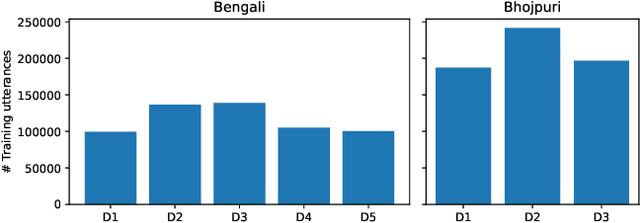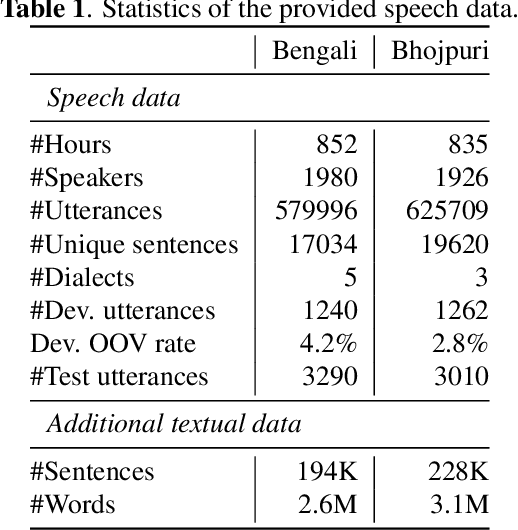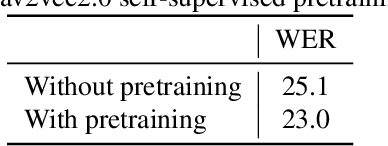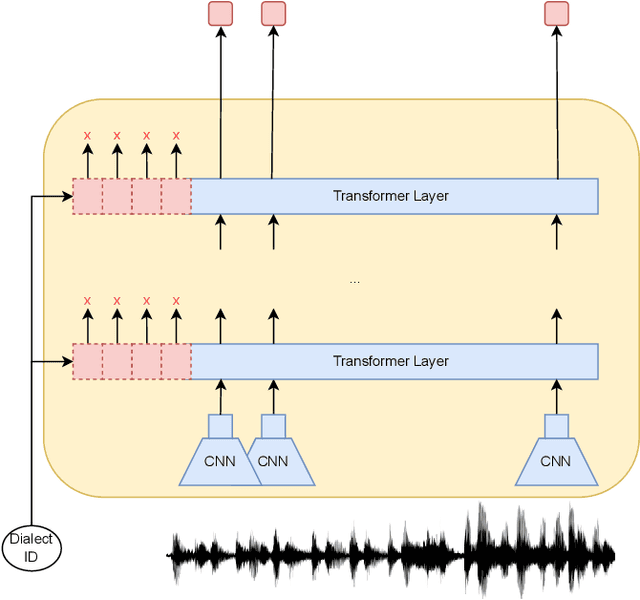Dialect Adaptation and Data Augmentation for Low-Resource ASR: TalTech Systems for the MADASR 2023 Challenge
Paper and Code
Oct 26, 2023



This paper describes Tallinn University of Technology (TalTech) systems developed for the ASRU MADASR 2023 Challenge. The challenge focuses on automatic speech recognition of dialect-rich Indian languages with limited training audio and text data. TalTech participated in two tracks of the challenge: Track 1 that allowed using only the provided training data and Track 3 which allowed using additional audio data. In both tracks, we relied on wav2vec2.0 models. Our methodology diverges from the traditional procedure of finetuning pretrained wav2vec2.0 models in two key points: firstly, through the implementation of the aligned data augmentation technique to enhance the linguistic diversity of the training data, and secondly, via the application of deep prefix tuning for dialect adaptation of wav2vec2.0 models. In both tracks, our approach yielded significant improvements over the provided baselines, achieving the lowest word error rates across all participating teams.
 Add to Chrome
Add to Chrome Add to Firefox
Add to Firefox Add to Edge
Add to Edge